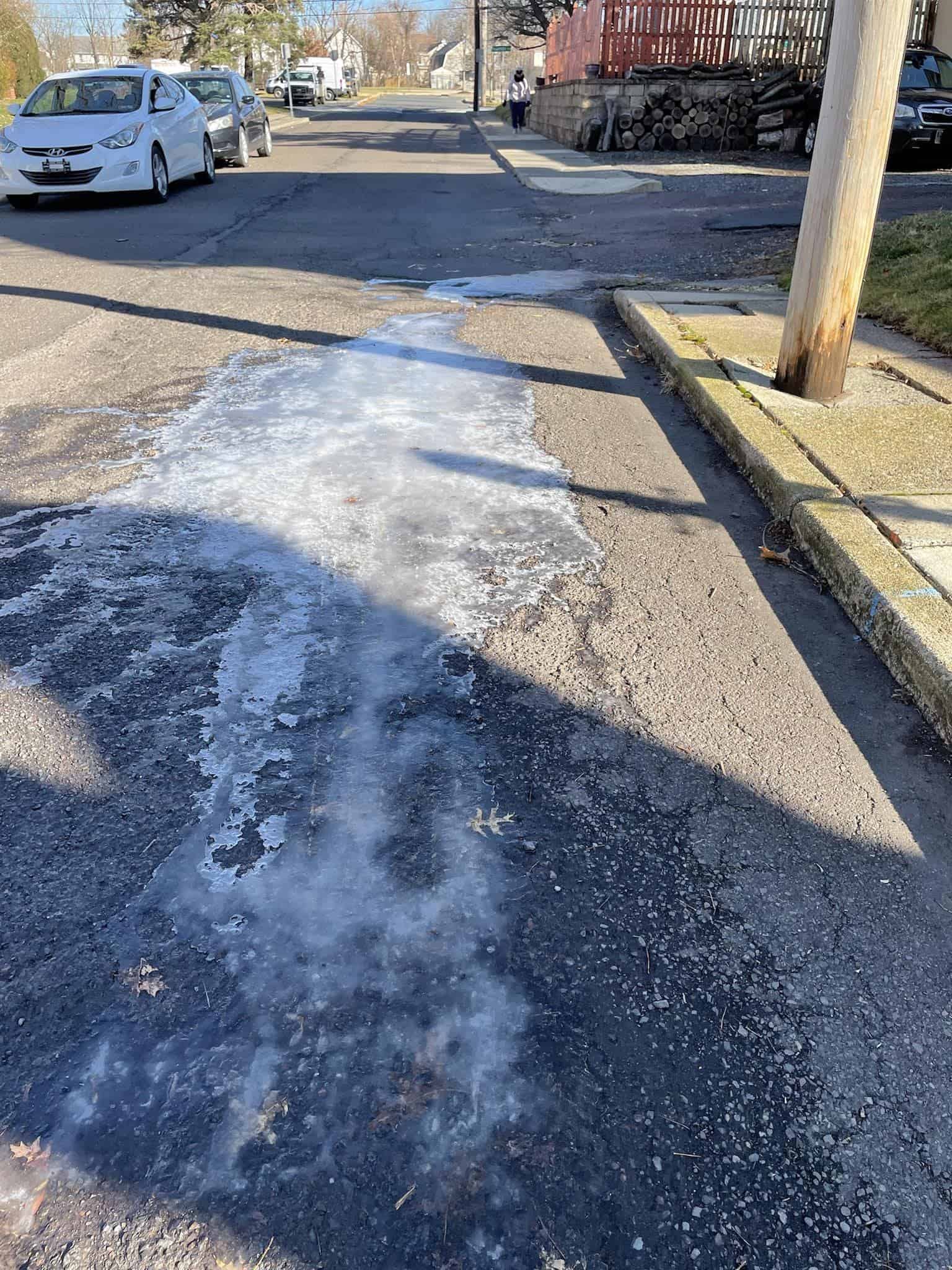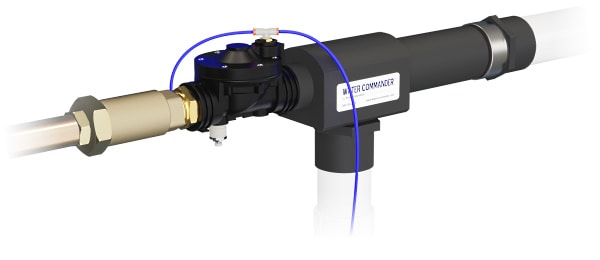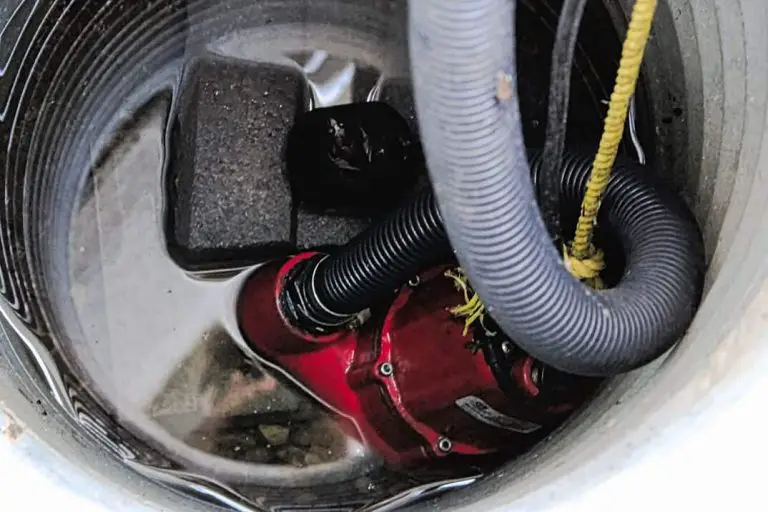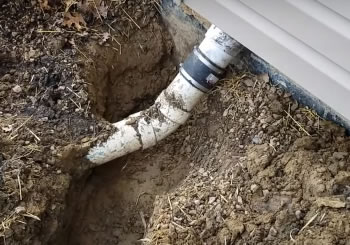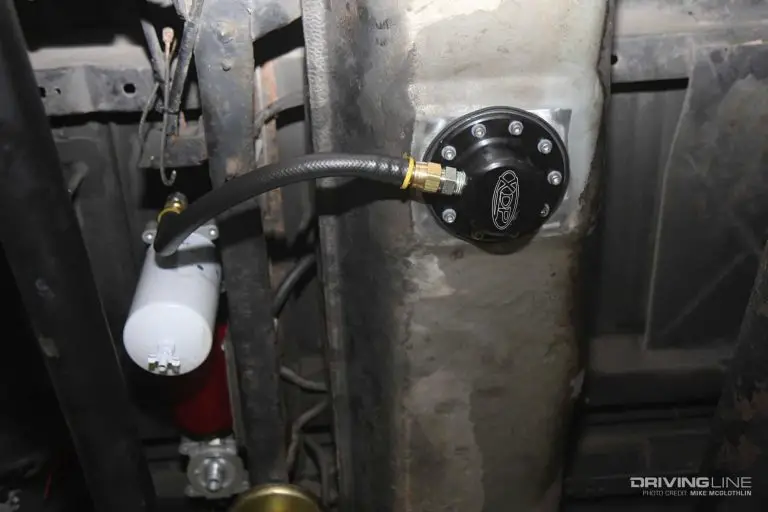Can I Discharge My Sump Pump into the Street
Most people are unaware that they can discharge their sump pump into the street. The process is actually quite simple and can be done in a matter of minutes.
All you need is a garden hose and a few supplies from your local hardware store. With a little bit of knowledge, you can keep your basement dry and free of flooding.
- Find your sump pump and make sure it is turned off
- Locate the discharge pipe on your sump pump
- This is the pipe that water flows out of when the pump is turned on
- Measure the diameter of your discharge pipe
- Find a street drain that is the same diameter as your discharge pipe and remove any debris that may be blocking it
- Place the end of your discharge pipe into the street drain and make sure it is secure so that water will not leak out
- Turn on your sump pump and let it run until all the water has been discharged from your basement or crawl space
How To Properly Discharge A Sump Pump – Milton DE
Sump Pump Drainage Laws
Most homeowners are not aware that there are laws in place regarding the installation and use of sump pumps. A sump pump is a device that is installed in the lowest point of a home’s basement or crawlspace.
Its purpose is to remove water that has accumulated in these areas and prevent flooding. While a sump pump can be a lifesaver during periods of heavy rain, if it is not installed and maintained properly, it can create problems for your neighbours.
That’s why it’s important to be familiar with your municipality’s sump pump drainage laws before you install one. In general, most municipalities require that sump pump discharge be directed away from neighbouring properties and onto your own property, at least 2 metres from any building foundation.
Sometimes, a municipal bylaw will specify an even greater distance. It’s also common for municipalities to require that discharge be directed into an approved storm sewer system or natural drainage course such as a ravine or stream.
Before you install a sump pump, check with your local municipality to see what rules apply in your area. By following the law, you can help keep everyone safe and dry during periods of heavy rain.
Where to Run Sump Pump Discharge
If you have a sump pump in your home, you may be wondering where the best place to discharge the water is. The answer to this question depends on a few factors, including the climate and layout of your property.
In general, though, there are a few basic guidelines to follow when deciding where to run your sump pump discharge. In most cases, the best place to discharge sump pump water is into a storm drain or other drainage system that leads away from your home.
This will help ensure that the water does not pool around your foundation and cause damage or flooding. If you live in an area with high rainfall or frequent flooding, you may want to consider discharging your sump pump into a dry well or other holding container so that it can be reused later if needed.
Another factor to consider when choosing a discharge location is the climate. If you live in an area with cold winters, it’s important to make sure that the discharge pipe doesn’t freeze over and block the flow of water.
One way to prevent this is to run the pipe above ground for at least a few feet before it enters any kind of drainage system. This will help ensure that any water that does back up will have somewhere to go without causing harm to your home. following these guidelines should help you choose the best place to run your sump pump discharge pipe.
Sump Pump Drain Too Close to House
If you have a sump pump, you know that they are vital to keeping your basement dry. But did you know that the location of your sump pump can actually impact its effectiveness? If your sump pump drain is too close to your house, it could actually be causing problems.
That’s because if the drain is too close to the foundation of your home, water can actually seep back into the basement. This is especially true if there is any sort of grading issue near the foundation. So if you want to keep your basement dry, make sure that your sump pump drain is at least six feet away from the foundation of your home.
Sump Pump Discharge Overflow
A sump pump is a device that helps to remove water from your home that has accumulated in the sump basin. The water is typically pumped out through a hose or pipe to an area away from your house.
If you have a sump pump, it’s important to know what to do if the discharge pipe overflows. If your sump pump discharge pipe overflowing, the first thing you should do is check the float switch.
The float switch is what tells the pump when to turn on and off. If the float switch is stuck in the “on” position, it will cause the pump to run continuously and can cause the discharge pipe to overflow.
If the float switch is not the problem, then there could be something wrong with the impeller. The impeller is what moves the water through the pump and out of your home.
If there is something blocking the impeller or if it’s not moving properly, it can cause a backup of water and an overflowing discharge pipe. If you can’t identify any problems with either the float switch or impeller, then it’s possible that there is too much water in your sump basin for the pump to handle.
This can happen during periods of heavy rain or snowmelt. When this happens, you may need to temporarily redirect some of the water away from your home until things dry out enough for your sump pump to keep up. In any case, an overflowing sump pump discharge pipe can be a serious problem so it’s important to take action quickly if it happens at your home!
How to Hide Sump Pump Discharge Pipe
As a homeowner, you may be wondering how to hide sump pump discharge pipe. While this may seem like a daunting task, there are actually several easy and effective ways to do it.
By following a few simple tips, you can easily conceal your sump pump discharge pipe and keep your home looking neat and tidy. One way to hide sump pump discharge pipe is to use PVC pipe.
This type of pipe is readily available at most hardware stores and is relatively inexpensive. You can simply cut the PVC pipe to the desired length and then attach it to the end of the sump pump discharge hose using PVC glue or tape.
Once the PVC pipe is in place, you can then cover it with soil or mulch. This will effectively camouflage the pipe and make it nearly invisible.
Another option for hiding sump pump discharge pipe is to create a false wall around the perimeter of the area where thepipe will be installed. To do this, simply build a frame out of 2x4s or other similar lumber.
Then, attach plywood or drywall over the frame so that it covers the entire area. Once the false wall is complete, you can then install your sump pump discharge hose through one of the openings in the false wall.
Be sure to seal any gaps aroundthe hose with silicone caulk or expanding foam insulation so that water cannot leak out. Finally, finish offthe false wall by painting or staining it to match your home’s exterior finishings.
If you are looking for an even more discreet way to hide your sump pump dischargepipe, consider installing it underground. This option requires a little more work than simply attachingPVC piping but will give you much better results in terms of concealment.
To install your sump pumppipe underground, start by excavating a trench from your home’s foundation out towards whereyou want thepipe to terminate (usually at least 10 feet away). Then, runthe flexible PVC piping throughthe trench and connect itto your sump pump using PVC glue or tape as before described above method 1.
After connectingthe two pieces together securely , backfillthe trench with soiland compactit down firmly. Finally , seedor sod over topof buried portionofthe pipeline fora natural look .
Sump Pump Drainage Laws Michigan
In Michigan, sump pump drainage is regulated by the Department of Environmental Quality (DEQ). There are two types of sump pump systems: those that drain to a sanitary sewer and those that discharge to the ground.
Discharge to a sanitary sewer is regulated by the DEQ’s Water Division, while discharge to the ground is regulated by the DEQ’s Ground Water Quality Division. The following activities are exempt from permit requirements: discharges consisting only of water from household uses such as laundry, bathing, and washing dishes; dewatering associated with excavations for building foundations when conducted in accordance with good engineering practices; and agricultural field drainage when conducted in accordance with good farming practices.
However, all other sump pump discharges require a permit. Permits are required for both new and existing sump pump systems.
To obtain a permit, an application must be submitted to the DEQ along with a site plan showing the location of the proposed or existing discharge point(s), as well as any nearby surface water bodies. The application must also include a narrative describing how the sump pump system will be designed and operated in order to comply with all applicable laws and regulations.
Once an application has been submitted, it will be reviewed by staff from both the Water Division and Ground Water Quality Division. If everything is in order, a permit will be issued within 30 days. If there are any problems with the application or if additional information is needed, applicants will be notified so that they can make necessary corrections or provide additional information.
Sump Pump Discharge Line Underground Clogged
If you have a sump pump in your home, it’s important to keep the discharge line clear and free from any blockages. A clogged discharge line can cause your sump pump to fail, which can lead to flooding in your basement or crawlspace.
There are a few things that can cause your sump pump discharge line to become clogged. One of the most common causes is debris that gets into the line.
This can include leaves, twigs, dirt, and even small animals like rodents. If you have a lot of trees near your home, this can be a particularly big problem.
Another common cause of clogged sump pump lines is simply age and wear. Over time, the lines can become cracked or damaged, allowing dirt and other contaminants to enter and build up over time.
If you suspect that your sump pump discharge line is clogged, there are a few things you can do to try and clear it yourself. First, use a garden hose to flush out any debris that might be blocking the line.
If this doesn’t work, you may need to remove the entire line and clean it out with a wire brush or similar tool. However, if the line is severely blocked or damaged, it’s best to call in a professional plumber to handle the repair or replacement for you.

Credit: www.gothrasher.com
Can You Drain Sump Pump to Street?
Most municipalities have laws in place that prohibit discharging sump pump water onto the street or into storm drains. The reason for this is that sump pump water is often contaminated with chemicals, oil, and other pollutants that can be harmful to the environment.
Additionally, discharge from sump pumps can cause flooding and other damage to public property. If you are caught draining your sump pump onto the street, you could be fined or even arrested.
Where Should a Sump Pump Discharge?
A sump pump is a device used to remove water that has accumulated in a water-collecting sump basin, typically found in the basement of homes. The discharge pipe for a sump pump is normally installed with a check valve to prevent backflow.
This type of valve allows water to flow in only one direction, so once the water has been pumped out of the sump basin and up into the discharge pipe, the check valve will close and prevent any water from flowing back down into the basin. The most common location for a sump pump discharge is outdoors.
Thepipe should be directed away from your home foundation to avoidany flooding or leaks. It’s also important to make sure thatthe outlet for your discharge pipe is not lower than the inlet forthe sump pump so that water can’t backflow into your home throughthe system.
Can You Pump Rain Water into the Street?
It is possible to pump rain water into the street, but there are a few things to consider before doing so. If the rainfall is excessive, it could overwhelm the storm sewer system and cause flooding. In addition, pumping rain water into the street could create slip and fall hazards for pedestrians.
Can I Route My Sump Pump to Sewer Line?
If you have a sump pump in your home, you may be wondering if you can route the discharge pipe to your sewer line. The answer is maybe.
It depends on several factors including the size of your sump pump, the capacity of your sewer line, and local building codes. Sump pumps are designed to remove water that has accumulated in a sump pit.
The water is typically pumped out of the pit and discharged into a drain or onto the ground away from the foundation of your home. If you live in an area with a high water table or experience frequent flooding, routing your sump pump discharge to your sewer line may be the best option to prevent basement flooding.
Before making any changes to your sump pump system, check with your local building department to see if there are any restrictions or requirements for routing the discharge pipe to sewer lines. Some municipalities prohibit this type of connection due to potential sewage backups during power outages or heavy rains.
Even if it is allowed, you will need to make sure that your particular sump pump is sized properly for this type of connection. Most residential-size pumps cannot handle the volume of water that would be produced by more than one household so connecting multiple homes to one line is not typically allowed.
If you decide to go ahead and route your sump pump discharge pipe to your sewer line, there are a few things you need to do in order to ensure proper operation and avoid damaging either system. First, install a backflow prevention device between the two systems. This will help keep sewage from flowing back into clean water piping during a power outage or clog in the municipal sewer system.
Conclusion
You may be wondering if you can discharge your sump pump into the street. The answer is maybe.
It depends on the municipality that you live in. Some municipalities do not allow it, while others have no problem with it. You will need to check with your local municipality to see what their regulations are.

